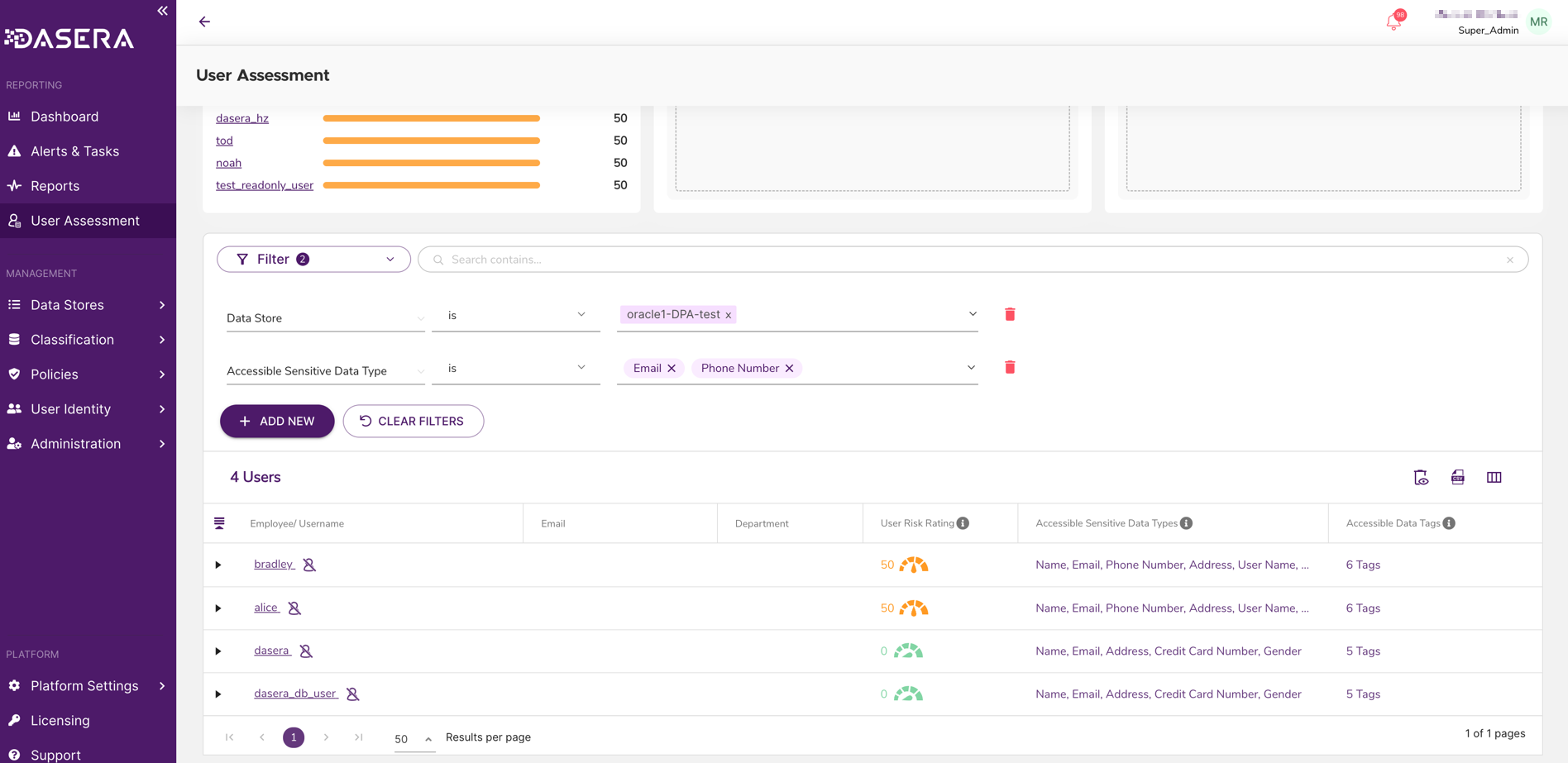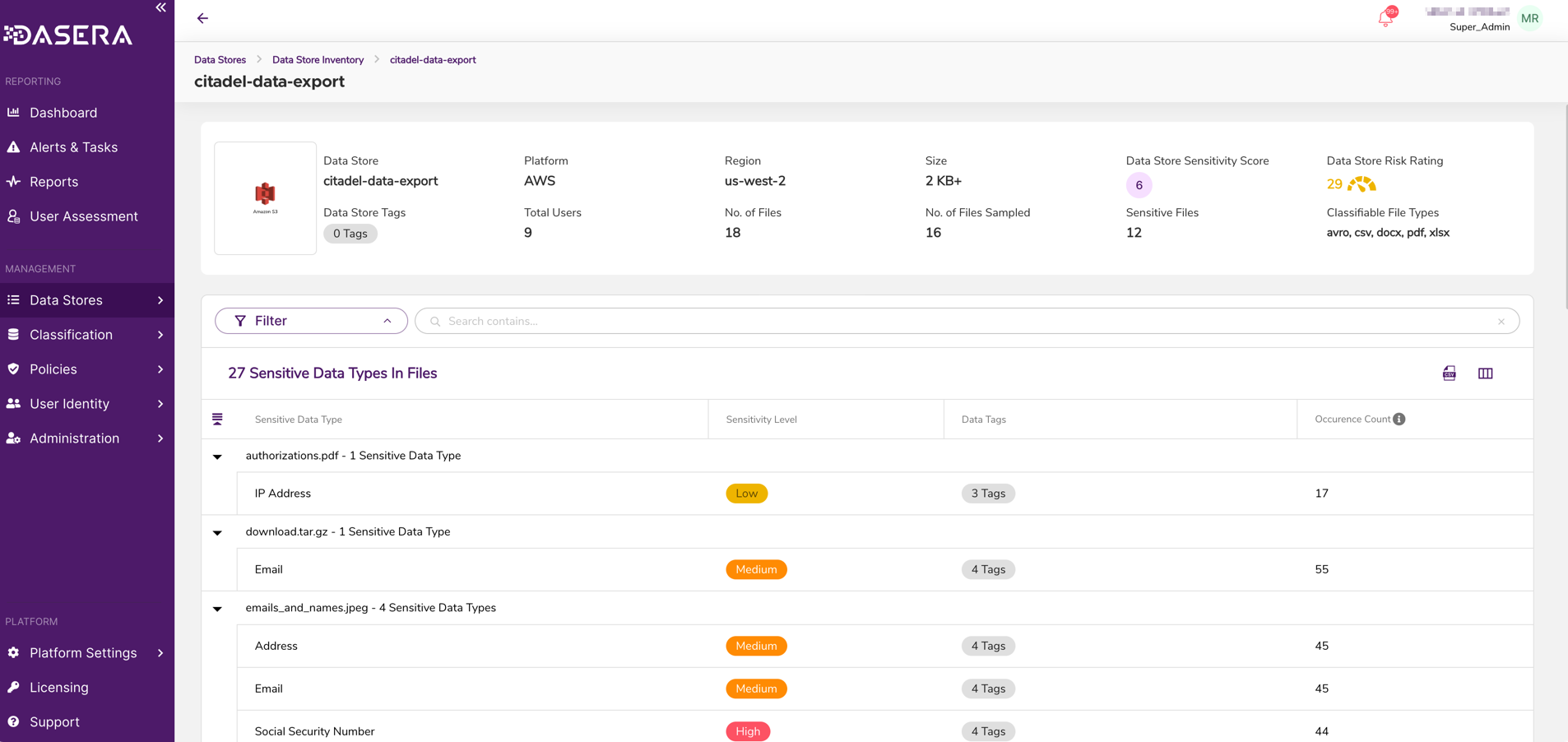Major New Features
Support for Deep Privilege Analysis for Oracle Data Stores
Netskope One DSPM now supports Deep Privilege Analysis for Oracle data stores, expanding visibility into who has access to what data. Object-level privilege analysis shows exactly what type of sensitive data is accessible to which user, providing key insights into who can access PII, credit card info, passwords, or other sensitive data types. Advanced data context via Deep Privilege Analysis helps you better understand your organization's overall security posture. Read more about Connecting to Oracle Data Stores.

Improvements and Updates
Classification Engine Unification
Netskope One DSPM's classification engine now functions uniformly across structured and unstructured data stores. This means that built-in sensitive data types are used to classify data across all data stores using a reliable combination of indicators, such as keywords, field or file names, dictionaries, proximity, query logs, regex, and/or checksums. The Custom Sensitive Data Type UI has also been simplified to reflect unified match conditions for structured and unstructured data. Finally, we've significantly improved match results for classifiers across Netskope One DSPM, improving overall classification performance. Please contact your account team if your organization has match criteria defined for unstructured data.

Sensitive File Counts
The number of sensitive files sampled in an unstructured data store now appears in the data store summary, providing more detail on your unstructured data. This mirrors the sensitive field count for structured data stores, further unifying and enhancing Netskope One DSPM's unstructured data capabilities.
